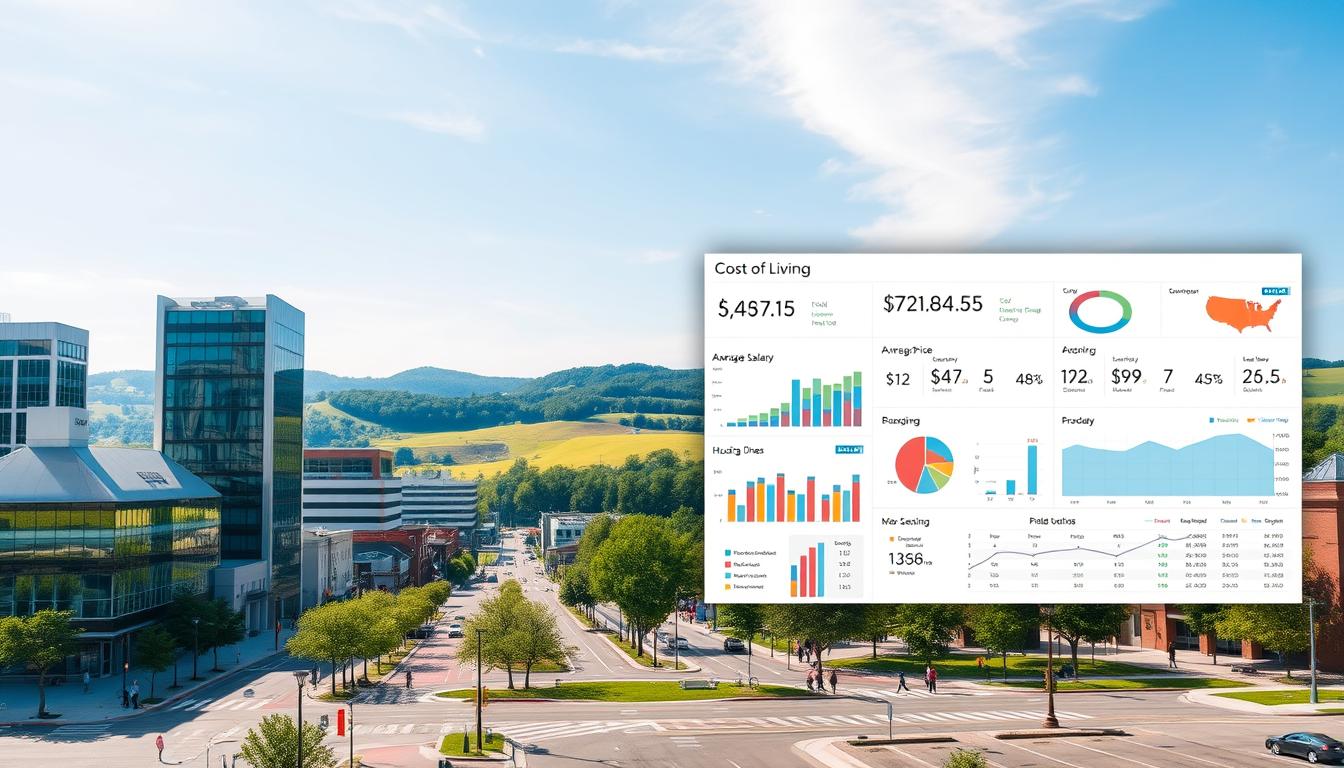Did you know professionals in higher education roles will see 12% job growth by 2025? This surge creates opportunities for those ready to guide students through one of life’s biggest decisions. With salaries averaging $68,000 annually and roles requiring creative problem-solving, this career offers both stability and purpose.
Breaking into this field demands more than passion. Hiring managers prioritize candidates who combine interpersonal skills with technical know-how. You’ll need to showcase expertise in academic advising, cultural competency, and data-driven decision-making—all while managing frequent travel and diverse student needs.
Tools like RoboApply simplify the process. Our platform helps craft standout resumes, track applications, and prepare for interviews. For example, our analytical chemist resume examples demonstrate how transferable skills from other fields can align with admissions roles.
Key Takeaways
- Salaries average $65,800-$70,000 with growing demand in private institutions
- Master’s degrees in counseling or education boost competitiveness
- 25% travel requirement emphasizes adaptability and cultural awareness
- RoboApply’s tools streamline application tracking and interview prep
- Networking through professional associations accelerates success
Understanding the College Admissions Counselor Role
Admissions professionals shape academic futures by connecting institutions with potential students. Their days blend recruitment strategy with personalized guidance, requiring equal parts diplomacy and data analysis. You’ll balance ethical standards with enrollment targets—a tightrope walk defining modern higher education careers.
Job Responsibilities in Higher Education
Your core tasks include evaluating applications and hosting campus events. Travel consumes 30% of your time—college fairs in Chicago, high school visits in Miami. CRM platforms like Slate become your command center, tracking 500+ prospects monthly.
Collaboration fuels success. You’ll partner with financial aid to address cost concerns and work with faculty to showcase programs. Enrollment targets loom large, with conversion rates directly tied to institutional funding.
Insights from Industry Experts
“Treat every interaction as a two-way interview,” advises Maria Gonzalez, Associate Dean at UCLA. “Students assess your authenticity while you evaluate their fit.” Weekend work during peak seasons tests stamina, but witnessing first-gen scholars thrive makes it worthwhile.
This role differs across institutions. Community colleges prioritize access, while research universities seek specialized candidates. Those eyeing academic advisor positions should note overlapping skills in student advocacy and institutional policy navigation.
How to Land a College Admissions Counselor Job in 2025
Securing a role in academic recruitment requires more than credentials—it demands a tactical approach. Start by mastering tools like RoboApply’s job tracker, which organizes openings from admissions counselor positions nationwide. Set daily alerts for target institutions and automate follow-ups through the platform’s CRM to stay ahead in competitive markets.
Leveraging RoboApply Tools for Application Success

Transitioning from other fields? Highlight transferable skills like event coordination or data analysis in your materials. A former teacher might emphasize student advocacy, while retail managers can showcase conflict resolution. Use RoboApply’s templates to frame these experiences as assets for college admissions work.
Building a Strategic Career Path
Join regional ACAC chapters to access unposted roles—45% of hires occur through member referrals. Volunteer with organizations like College Bound Mentors to demonstrate commitment. “Shadowing admissions teams during peak seasons reveals institutional priorities,” notes Tara Weiss, a career coach specializing in higher education transitions.
Time applications around enrollment cycles: target community colleges in March and universities in October. Research each school’s retention challenges and mission—mention these insights during interviews to show alignment. For salary discussions, reference the $65,800-$70,000 range common for entry-level roles, emphasizing unique qualifications like bilingual counseling skills or CRM certifications.
Resume Strategies to Stand Out in College Admissions
Your resume acts as the first interview in paper form. Admissions teams review hundreds of applications weekly, making strategic presentation non-negotiable. RoboApply’s AI Builder transforms generic documents into targeted narratives that speak directly to admissions priorities.
Crafting an Optimized Resume with RoboApply's AI Builder
Start with transferable skills. The platform’s analysis feature identifies project management or public speaking experience from unrelated roles. For example: “Increased high school workshop attendance by 40% through targeted outreach” becomes “Boosted student recruitment engagement using data-driven communication strategies.”
Position your degree effectively. List relevant coursework like “Multicultural Education” or “Youth Development” above your GPA. Those with college admissions resume examples show 22% higher callback rates by frontloading qualifications.
ATS Optimization and Internal Link Opportunities
RoboApply’s ATS scanner ensures your document passes automated screens. It suggests keyword placement like “admissions cycle management” or “stakeholder relations” based on job descriptions. Quantify achievements using metrics admissions offices value: “Coordinated 15+ campus tours monthly” demonstrates scalable experience.
Tailor resumes by institution type. Highlight community outreach for community colleges or data analysis for research universities. Our recruiting coordinator resume guide reveals how to adapt language for different screening committees.
Essential Skills and Qualifications for the Role
Admissions teams seek candidates who blend human-centered skills with technical expertise. Your ability to translate complex processes into clear guidance determines success in this field. Let’s break down the core competencies hiring committees prioritize.

Communication and Advising Skills
Mastering student interactions requires adapting your style to different audiences. Practice explaining financial aid packages to both teens and grandparents. One admissions director recalls: “Our best counselor rephrased scholarship requirements three ways until a first-gen student’s family nodded in unison.”
Develop crisis management techniques for heated parent meetings. Role-play scenarios where you balance institutional policies with empathy. Strong communication skills shine when addressing 300+ students at college fairs while remembering individual names and interests.
Relevant Educational Background and Experience
While a bachelor’s degree meets basic requirements, 68% of top institutions prefer candidates with master’s degrees in counseling or education. Coursework in conflict resolution and adolescent psychology proves particularly valuable. Those transitioning from roles like leasing consultant can highlight transferable skills in client negotiations and documentation.
Build experience through targeted volunteering. Assist with FAFSA workshops at local high schools or mentor through programs like College Possible. These activities demonstrate hands-on commitment to student success beyond academic credentials.
Interview Preparation and Success Tips
Mastering admissions interviews requires more than polished answers. Hiring committees want candidates who understand the gritty realities behind recruitment seasons. You’ll need to showcase both empathy for students and stamina for 60-hour work weeks.
Preparing for Common Interview Questions
Practice explaining how you’d handle a parent disputing financial aid decisions. Use RoboApply’s interview coach to simulate scenarios like declining an overqualified applicant due to enrollment quotas. One admissions director notes: “We listen for candidates who acknowledge the emotional weight of saying ‘no’ while maintaining institutional priorities.”
Prepare stories about building trust with high school students from varied backgrounds. Describe a time you adapted communication styles for first-gen families or resolved conflicts between guidance counselors and institutional policies. Quantify outcomes: “Increased applications 25% in my territory by redesigning outreach materials for ESL communities.”
Utilizing RoboApply's Interview Coach and Chrome Extension
The platform’s AI analyzes your mock interview responses, flagging overused phrases like “passion for helping.” Instead, it suggests concrete examples: “Coordinated virtual tours during COVID closures” demonstrates adaptability. Use the Chrome extension to research interviewers’ publications—mention their recent article on student admissions counselor interview preparation to show engagement.
Address travel readiness head-on: “I’ve blocked October weekends for college fairs in my calendar.” For interview preparation strategies, focus on school-specific values. If applying to a faith-based college, highlight experience coordinating service-learning programs. Always end with questions revealing institutional knowledge: “How does your team balance enrollment targets with mission-driven admissions?”
Conclusion
Your path to becoming a college admissions counselor starts with strategic action. Combine RoboApply’s AI resume builder with hands-on experience in student advising roles. Institutions value candidates who demonstrate cultural awareness and data literacy—skills you can showcase through volunteer mentoring or alumni recruitment initiatives.
Maximize efficiency by syncing RoboApply’s job tracker with your calendar to manage application deadlines. The platform’s interview simulator helps refine responses to scenario-based questions about financial aid discussions or enrollment challenges. Those transitioning from related fields like academic advising or loan processor roles should emphasize transferable skills in client relations and regulatory compliance.
Success in this field demands adaptability—prepare to balance travel schedules with personalized student support. Continuous learning through NACAC workshops or diversity training programs keeps your approach fresh. RoboApply’s tools provide the edge needed to navigate competitive hiring processes while maintaining authentic connections with applicants.
Remember: every interaction shapes educational futures. By aligning your preparation with institutional priorities and student needs, you’ll build a rewarding career driving access to higher education. Start today by exploring RoboApply’s resources tailored for admissions professionals.
FAQ
What education is required to become a college admissions counselor?
Most colleges require a bachelor’s degree in education, psychology, or related fields. Competitive roles often prefer a master’s in higher education administration or counseling. Experience advising students through programs like Upward Bound or college prep workshops strengthens candidacy.
Which skills are most critical for success in admissions counseling?
Strong oral and written communication skills are essential for guiding students and collaborating with schools. Technical proficiency in CRM platforms like Slate, data analysis for enrollment trends, and cultural competency to support diverse applicants are equally valuable.
How can I optimize my resume for college admissions roles?
Use tools like RoboApply’s AI Resume Builder to highlight quantifiable achievements (e.g., “Increased applicant diversity by 22%”). Include ATS-friendly keywords like “student advocacy,” “financial aid navigation,” and “admissions cycle management” from the job description.
What interview questions should I prepare for?
Expect scenario-based questions like “How would you handle a student with conflicting college choices?” Use RoboApply’s Interview Coach to practice responses that showcase problem-solving, ethical judgment, and familiarity with FERPA compliance standards.
Can teaching experience transition into admissions counseling?
Yes. Highlight transferable skills like academic advising, parent-teacher conferences, and curriculum planning. Emphasize experience with IEP/504 plans or college readiness programs to demonstrate student support expertise.
Are certifications valuable for this career path?
Certifications like NACAC’s Admissions Leadership Certificate or Certified Educational Planner (CEP) enhance credibility. Some states require school counseling licensure for public university roles.
How do I stay updated on college admissions trends?
Follow organizations like NACAC, attend conferences like College Board Forum, and enroll in Coursera courses on enrollment management. Familiarity with test-optional policies and AI essay tools is increasingly important.
What career growth opportunities exist in this field?
With 3-5 years of experience, you can advance to roles like Director of Admissions or Dean of Enrollment. Specialize in areas like international student recruitment or athletic admissions for niche opportunities.
How important is familiarity with financial aid processes?
Critical. Admissions counselors often explain FAFSA, scholarships, and work-study programs. Highlight any experience with financial aid software like PowerFAIDS or helping students secure Pell Grants.
Do admissions counselors work remotely?
Hybrid roles are common, especially for recruitment-focused positions. However, on-campus events and high school visits typically require in-person engagement. Highlight flexibility and time management skills if applying for remote-friendly roles.


















